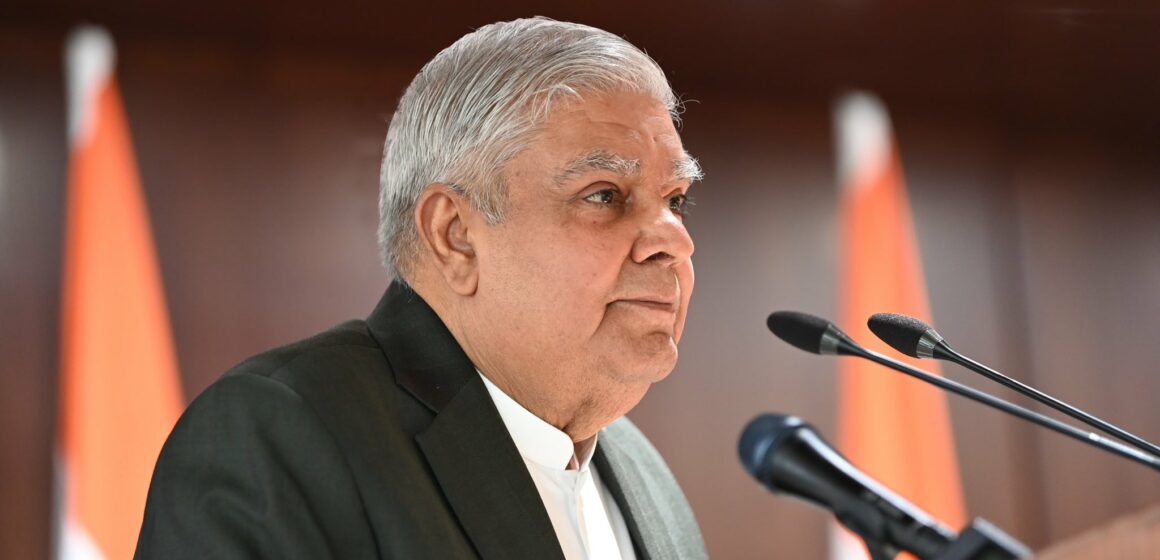The Uniform Civil Code (UCC), a long-debated legal framework for unifying personal laws in India, has taken a significant step forward with its implementation in Uttarakhand. Vice-President Jagdeep Dhankhar, addressing participants of the Rajya Sabha internship programme in Delhi, lauded this move as a pivotal and auspicious moment for the nation. He expressed optimism that the entire country would soon follow Uttarakhand’s example, calling it a progressive step toward equality and national unity.
What is the Uniform Civil Code (UCC)?
The Uniform Civil Code is a proposed legal framework that seeks to replace personal laws based on religious practices with a common set of civil laws for all citizens. Covering matters such as marriage, divorce, inheritance, and adoption, the UCC aims to promote equality and secularism, eliminating disparities arising from religion-based personal laws.
Uttarakhand’s Bold Step
Uttarakhand became the first state to implement the UCC on January 27, 2025, fulfilling a long-standing promise to harmonize personal laws. Known as “DevBhoomi” or the land of the gods, Uttarakhand’s move has been hailed as historic. The UCC in the state is expected to create a unified legal framework, ensuring fairness across all communities.
Chief Minister Pushkar Singh Dhami had earlier stated that Uttarakhand’s UCC reflects the aspirations of its people and serves as a model for other states. The implementation followed extensive consultations and expert committee reviews to ensure that all aspects of the law were carefully considered.
Vice-President Dhankhar’s Remarks
Vice-President Jagdeep Dhankhar commended Uttarakhand’s initiative, describing it as an “auspicious sign” for the country. He remarked that the implementation of UCC in a state as culturally significant as Uttarakhand was a significant milestone.
Dhankhar emphasized the importance of the UCC in fostering social harmony and equality, saying, “It is only a matter of time before the entire country adopts a Uniform Civil Code.” His statements underscore the growing momentum behind the idea of UCC as a national policy.
The Road to National Implementation
The idea of a nationwide UCC has been a subject of intense debate, with supporters citing its potential to uphold constitutional values of equality and secularism. The Bharatiya Janata Party (BJP), in particular, has advocated for the UCC, describing it as a means to unify the nation.
However, challenges remain. Critics argue that the UCC must be implemented carefully to respect cultural and religious diversity. The central government has reiterated its commitment to building consensus among various stakeholders before considering nationwide implementation.
Potential Benefits of the UCC
Equality Before Law: UCC ensures uniformity in civil laws, providing equal rights regardless of religion or gender.
Social Harmony: By removing disparities in personal laws, UCC promotes cohesion among diverse communities.
Women’s Empowerment: The UCC addresses issues of gender inequality prevalent in some personal laws, safeguarding women’s rights.
Challenges and the Way Forward
While Uttarakhand’s implementation of the UCC sets a precedent, its nationwide adoption requires overcoming several hurdles:
Cultural Sensitivities: Balancing uniformity with the preservation of cultural and religious practices.
Political Consensus: Ensuring bipartisan support to make UCC a reality.
Public Awareness: Educating citizens about the benefits of UCC and addressing misconceptions.
Conclusion
Uttarakhand’s pioneering step in implementing the Uniform Civil Code marks a turning point in India’s legal and social landscape. Vice-President Jagdeep Dhankhar’s optimism about its national adoption reflects the growing recognition of UCC as a tool for equality and unity. As debates and discussions continue, the successful implementation in Uttarakhand serves as a blueprint for the rest of the country.


Leave a Reply